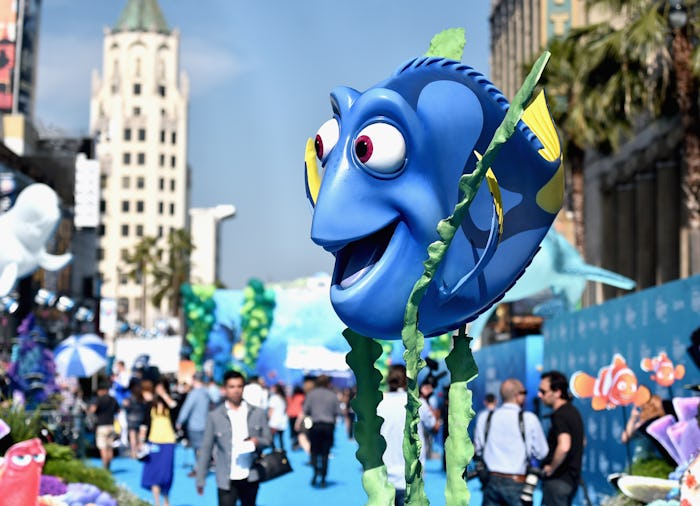Entertainment

Here's How You Can Help Ocean Conservation After Seeing ‘Finding Dory'
Finding Dory is slated to release Friday, and, while I have no doubt the latest Pixar flick, and Finding Nemo sequel, will be a huge success, many oceanographers and scientists have expressed concern that Finding Dory will negatively impact wild fish populations. In fact, these individuals are particularly concerned about the well-being of the regal blue tang, which is the kind of fish that Dory represents. However, while these concerns are legitimate, films like Finding Dory can also have a positive impact on oceanic wildlife. So how can you help ocean conservation after seeing Finding Dory? What can you do to ensure you have a positive impact on the environment and not a negative one?
According to Oceana, an international advocacy organization whose sole focus is ocean conservation, some of the best ways to help with ocean conservation are also the most obvious: i.e. eat sustainable seafood, support legislations — and legislators — who back good ocean policies, and work to reduce your overall energy use (you should work to reduce the size your carbon footprint). Oceana also advises all consumers to use reusable plastic products:
[Since] plastic debris in the ocean degrades marine habitats and contributes to the deaths of many marine animals...[you can] help prevent these unnecessary deaths...[by using] cloth grocery bags and reusable water bottles.
Other important actions include picking up garbage and litter near beaches and properly disposing of hazardous materials, which otherwise may end up in the water and/or washing ashore.
As for how you can protect fish like Dory and Nemo, the biggest thing you can do is not buy “wild-caught animals,” according to The Humane Society of the United States:
Never buy wild-caught animals, including blue tangs, as pets for home aquaria.
If you are not sure if the fish you buying at the pet store are wild, download the Tank Watch App — for free — and find out which fish are (and which are not) wild caught, as well as which fish survive best at home.
You can also sign the “Don’t Buy Wild” pledge and/or spread the word on social media using the hashtag #FishKissForNemo.
What’s more, researchers from the University of Queensland and Flinders University at Adelaide have created the Saving Nemo Conservation Fund, to help boost the supplies of nursery-bred fish to meet the inevitable demand:
We have pooled together our expertise for the sole purpose of funding nursery-breeding programs so we can stop the need to collect wild caught fish, research projects that help conserve wild populations and education programs that enable people to learn how to protect, breed and care for marine ornamental fish. We are funded through profits from fish sales, partnerships, grants and donations.
So don't forget that, while it may seem as though one person does not have the power to make a difference, they do. In fact, people's words and their actions have more power than they may think.